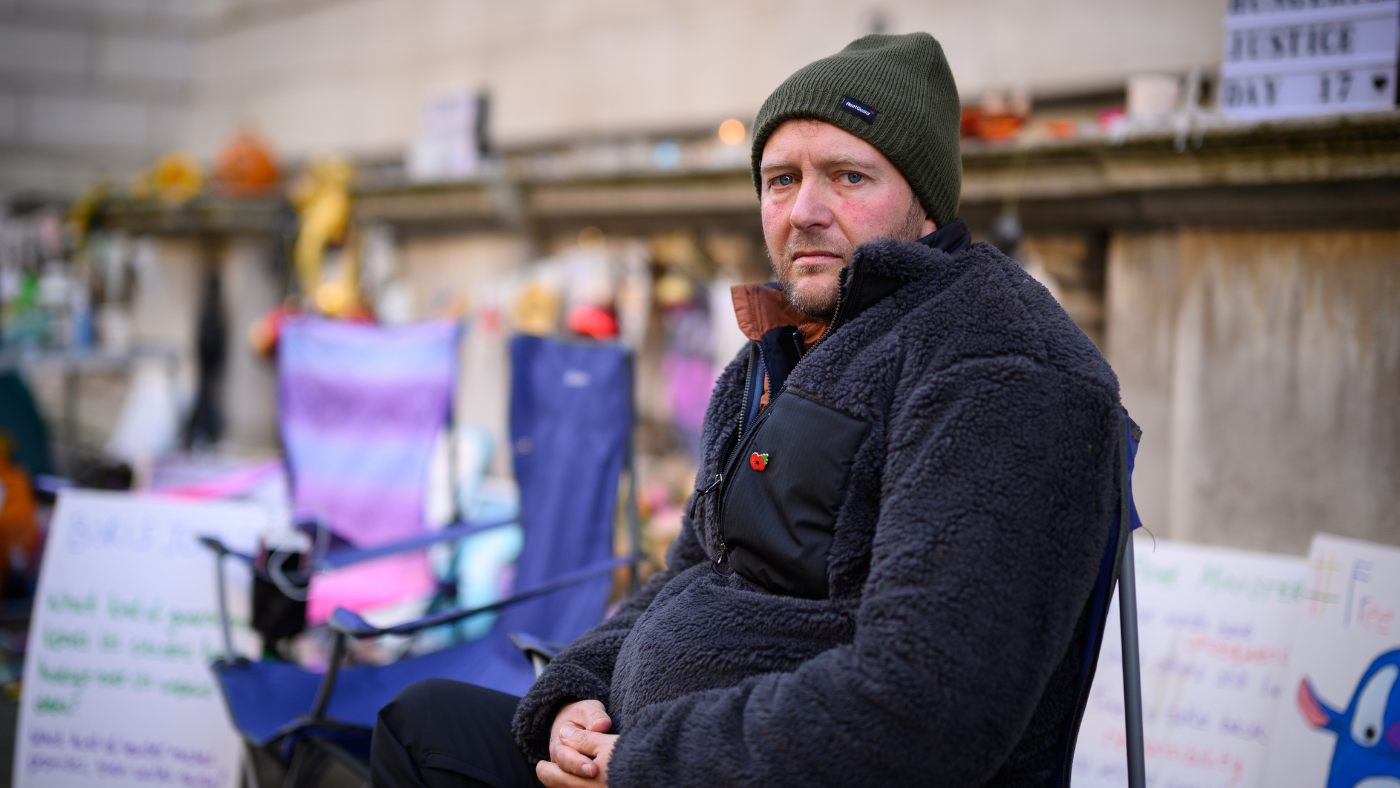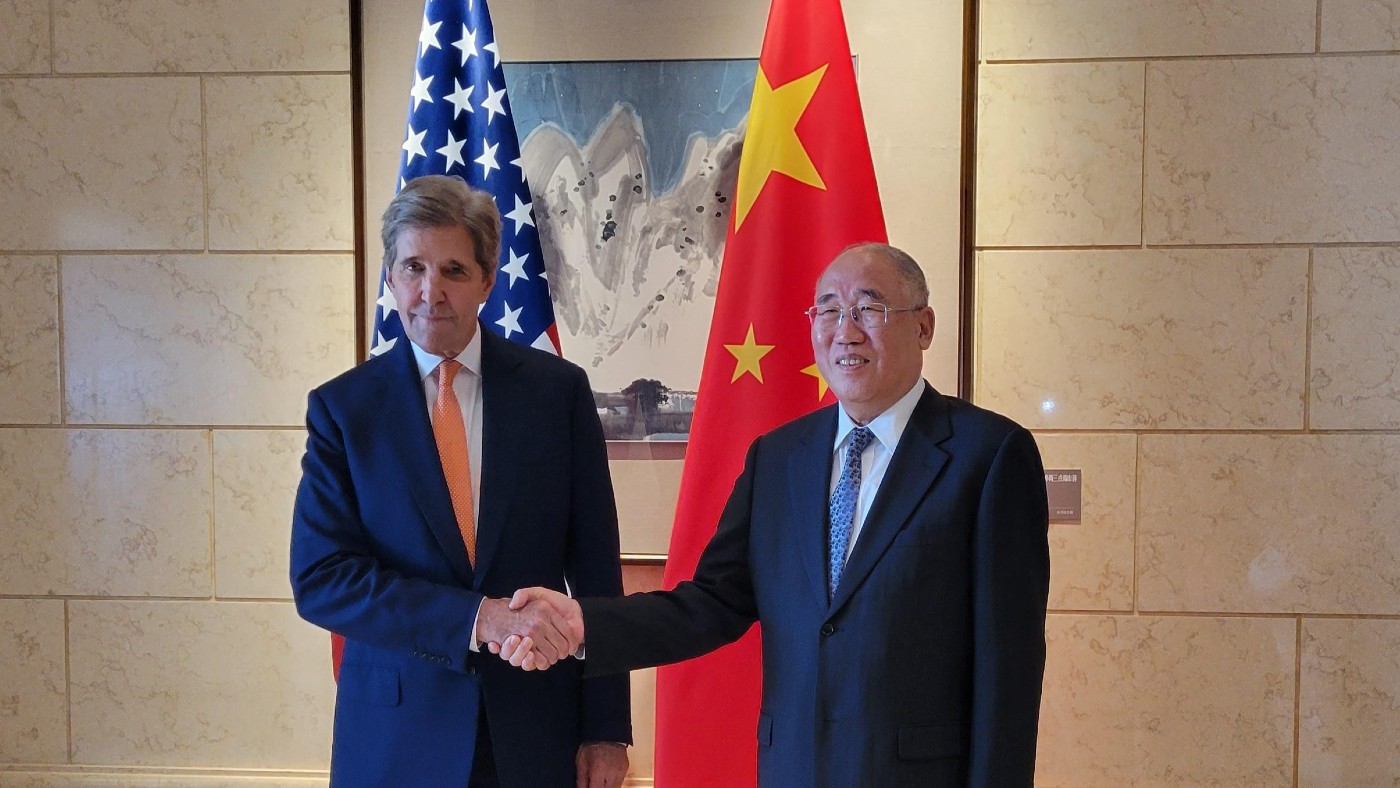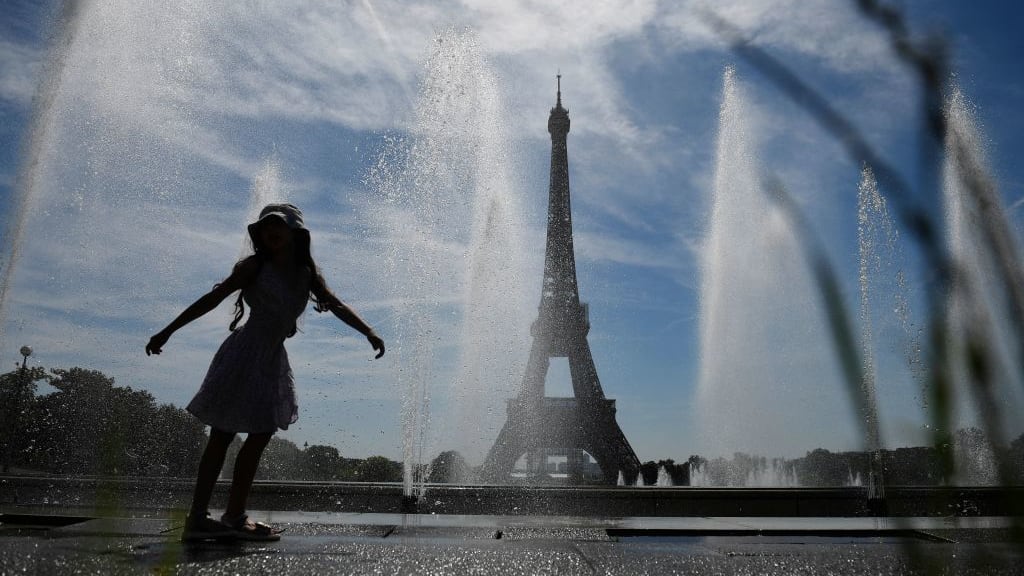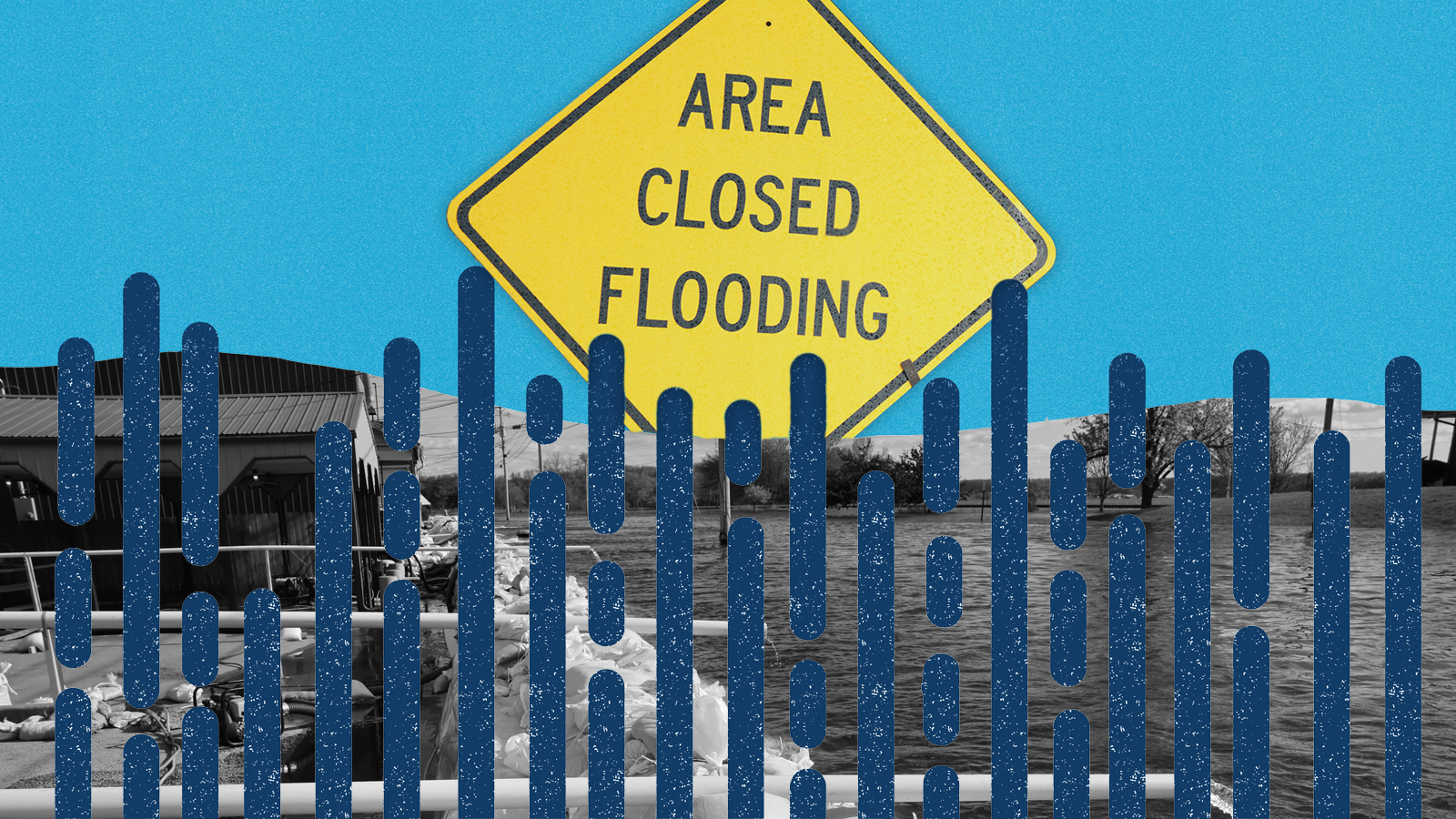‘The status quo must change if the government is to bring Nazanin home’
Your digest of analysis from the British and international press

A free daily email with the biggest news stories of the day – and the best features from TheWeek.com
You are now subscribed
Your newsletter sign-up was successful
1. I represent Nazanin Zaghari-Ratcliffe’s family – this is how we can bring her home
Leanna Burnard for The Independent
on a life-threatening status quo
Today is the 18th day of Richard Ratcliffe’s hunger strike. “By this point, his body is expected to be feeding on itself and unable to regulate his temperature, his metabolism slowed, kidney function impaired and immune system weakened,” writes his legal representative Leanna Burnard for The Independent. Meanwhile his wife is “trapped in Iran, yearning to raise her daughter Gabriella” and suffering so severely that her treatment “amounts to torture”. Richard has heard “countless times” that the government is doing all it can for Nazanin, but it is “abundantly clear that the current approach is not working”, writes Burnard. There are steps the government could take. The matter should be escalated to the United Nations, the government should “hold Iran accountable” under international law, and the £400m military debt owed by Britain must be paid too. “The one thing the government must not do is the only thing it offers – maintain the status quo.”
The Week
Escape your echo chamber. Get the facts behind the news, plus analysis from multiple perspectives.

Sign up for The Week's Free Newsletters
From our morning news briefing to a weekly Good News Newsletter, get the best of The Week delivered directly to your inbox.
From our morning news briefing to a weekly Good News Newsletter, get the best of The Week delivered directly to your inbox.
2. Never mind Merkel! The EU’s not doing so badly
Paul Taylor for Politico Europe
on reason for optimism
The picture Angela Merkel painted at her 107th EU summit as German chancellor last month was “decidedly gloomy”, writes Paul Taylor at Politico. “But was she right?” It’s difficult to argue with “a seasoned practitioner” like Merkel, “but a more optimistic reading of progress in European solidarity and integration is possible”. For the EU, 2021 has been a “watershed year”. It succeeded in collectively borrowing in the financial markets, in implementing a “massive” vaccine purchase programme and speeding up the sustainable finance sector, all while it “buttressed its leading role in the global fight against climate change”, Taylor continues. “Each new landmark in European integration is inevitably preceded” by much disagreement and “often greeted by a chorus of boos from activists dismayed that the outcome falls short of their ideals”. Ultimately, “it was ever thus”. The chancellor was “right to caution”, but “the glass is more than half full”.
A free daily email with the biggest news stories of the day – and the best features from TheWeek.com
3. Dads need to start shouting about paid leave
Jessica Grose at The New York Times
on needing new voices
The topic of federal paid parental leave in the US “goes viral” about once a year, writes Jessica Grose at The New York Times. When it does, people are reminded what an “absurd outlier” the United States is compared to other countries. It is enraging that mothers are “still having to splay our vulnerability and torn-up bodies out to the universe to get some legislators to prioritise mothers as humans in need of the barest social supports”, writes Grose, the latest move being the provision of four weeks’ paid leave. “Neither Democrat nor Republican voters seem to list paid leave as a top legislative priority”, and “if we want to be savvy about getting support” for the cause, then new voices and narratives are needed. “We need more fathers – and men in general – to be vocal about it,” says Grose. Many “tune out” new-mum stories, so “if listening to men’s stories is what it takes” to get paid leave, “let’s hear them”.
4. Make extreme wealth extinct: it’s the only way to avoid climate breakdown
George Monbiot for The Guardian
on who’s costing the climate
“I’ve come to believe that the most important of all environmental measures are wealth taxes,” says George Monbiot at The Guardian. The world’s richest 1% of people produce 15% of global carbon emissions, “twice the combined impact of the poorest 50%”. The emissions of the middle classes “are expected to fall sharply over the next decade”, but “the amount produced by the richest will scarcely decline at all”. To be a good global citizen would mean cutting their carbon contribution by 97% on average. Frequent flyers often tell us to “overlook the climate impacts of aviation”, but it is these emissions that account for most of the super-rich’s environmental footprint. “Their carbon greed knows no limits,” says Monbiot. And while poorer nations’ access to Cop26 has been “thwarted” by visa and vaccine restrictions, as well as accommodation costs, more than 500 fossil-fuel lobbyists are in attendance. Though the end of capitalism “is difficult to imagine”, let’s begin with something simpler to comprehend: “the end of concentrated wealth”.
5. Clues to Christie
The Times editorial board
on innocent entertainment
“The little-spoken truth of [Agatha] Christie’s oeuvre is that it’s not very good,” says The Times. Worldwide, more than two billion copies of her books have been bought, and her detective characters are now “synonymous with inspired sleuthing”. Despite this, “her prose is pedestrian, her plots are preposterous and her characterisation is unfailingly wooden.” And yet “the clamour” continues. The reasoning lies perhaps with not only literary audiences, but television ones too. With stories “that make no pretence to psychological insight”, film and TV crews are able to give new life with “period detail, excellent acting and sheer enjoyment”. This is the case with Christie’s whodunits. “They are puzzle books”, not explorations of the human psyche. And they come with “an inevitably reassuring message that life in the village, metropolis or exotic location will return to normal once the solution is reached”, says The Times. “Long may this innocent recreation continue.”
-
 The world’s most romantic hotels
The world’s most romantic hotelsThe Week Recommends Treetop hideaways, secluded villas and a woodland cabin – perfect settings for Valentine’s Day
-
 Democrats push for ICE accountability
Democrats push for ICE accountabilityFeature U.S. citizens shot and violently detained by immigration agents testify at Capitol Hill hearing
-
 The price of sporting glory
The price of sporting gloryFeature The Milan-Cortina Winter Olympics kicked off this week. Will Italy regret playing host?
-
 Woman accidentally puts nan in washing machine
Woman accidentally puts nan in washing machineTall Tales And other stories from the stranger side of life
-
 Bangladesh dealing with worst dengue fever outbreak on record
Bangladesh dealing with worst dengue fever outbreak on recordSpeed Read
-
 Glacial outburst flooding in Juneau destroys homes
Glacial outburst flooding in Juneau destroys homesSpeed Read
-
 John Kerry in Beijing: how red China is turning green
John Kerry in Beijing: how red China is turning greenfeature Climate talks set to resume between Washington and Beijing this week
-
 Study: Nearly 62,000 people died in 2022 European heatwave
Study: Nearly 62,000 people died in 2022 European heatwaveSpeed Read
-
 Arizona limits construction in Phoenix area amid groundwater shortage
Arizona limits construction in Phoenix area amid groundwater shortageSpeed Read
-
 How bad are this year's Mississippi River floods?
How bad are this year's Mississippi River floods?Speed Read "Everybody's plan along the river has been put to the test"
-
 What is OPEC and how does it affect oil prices?
What is OPEC and how does it affect oil prices?Speed Read Everything you need to know about the influential organization and its rocky relationship with the United States